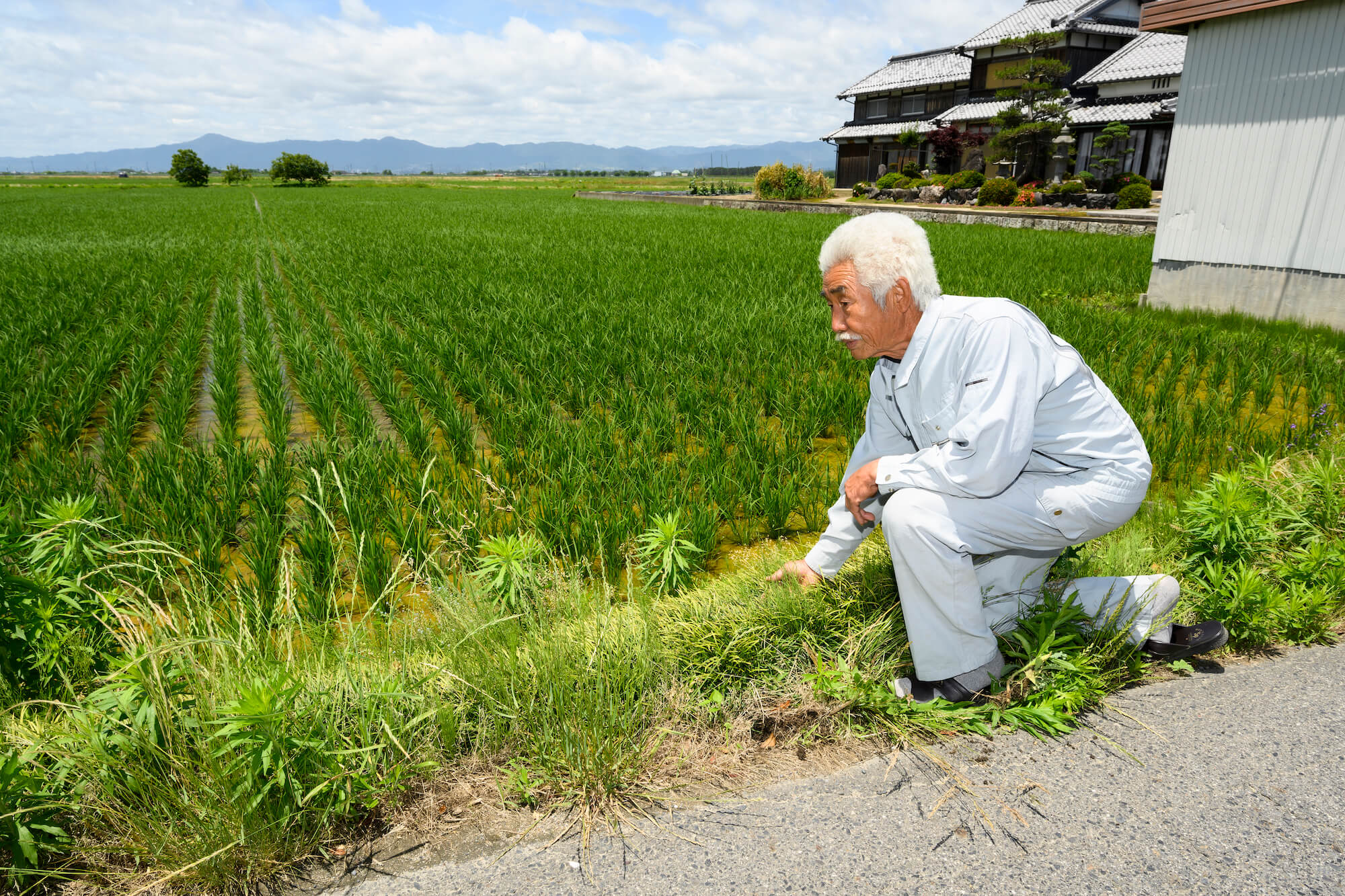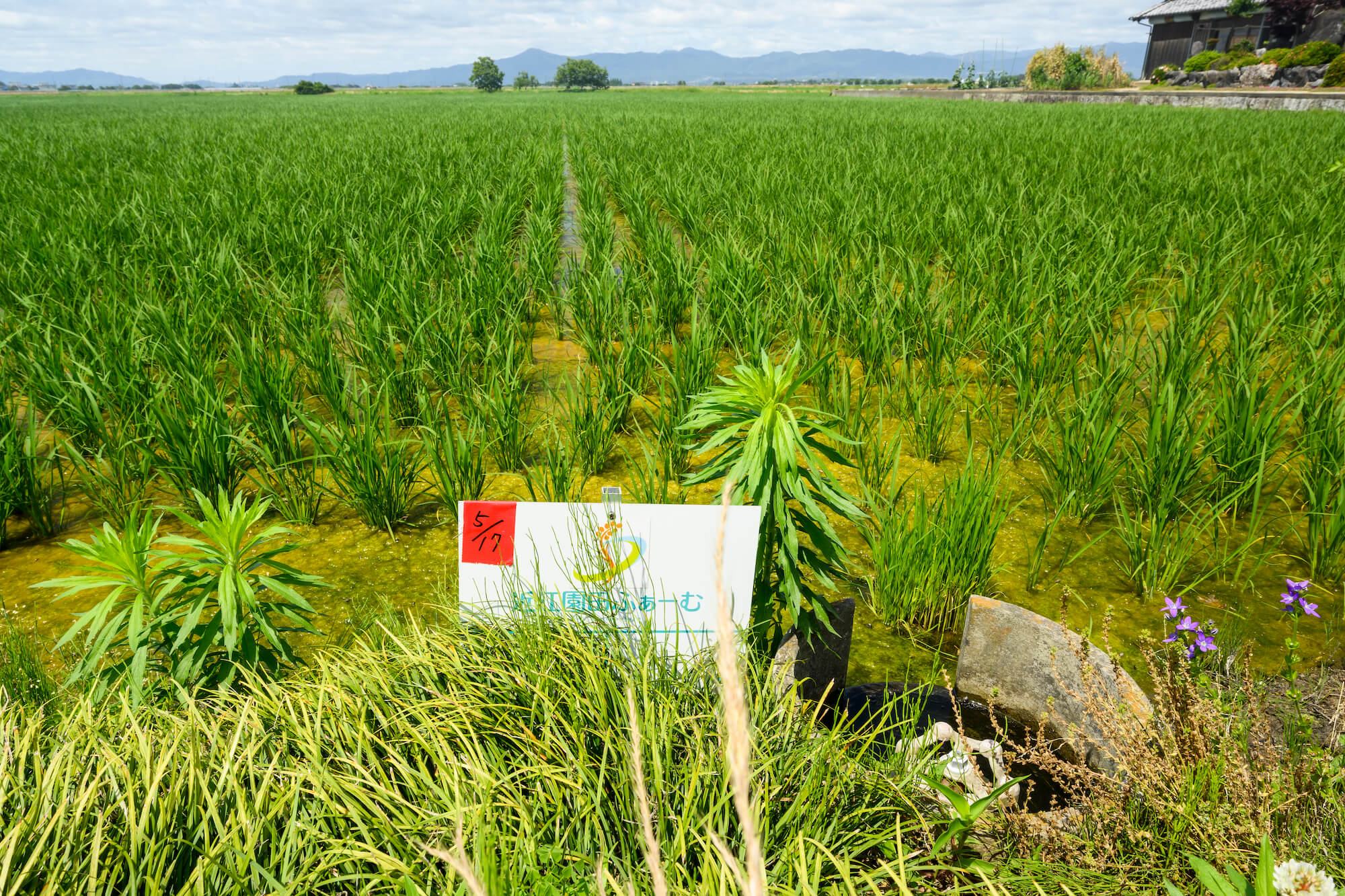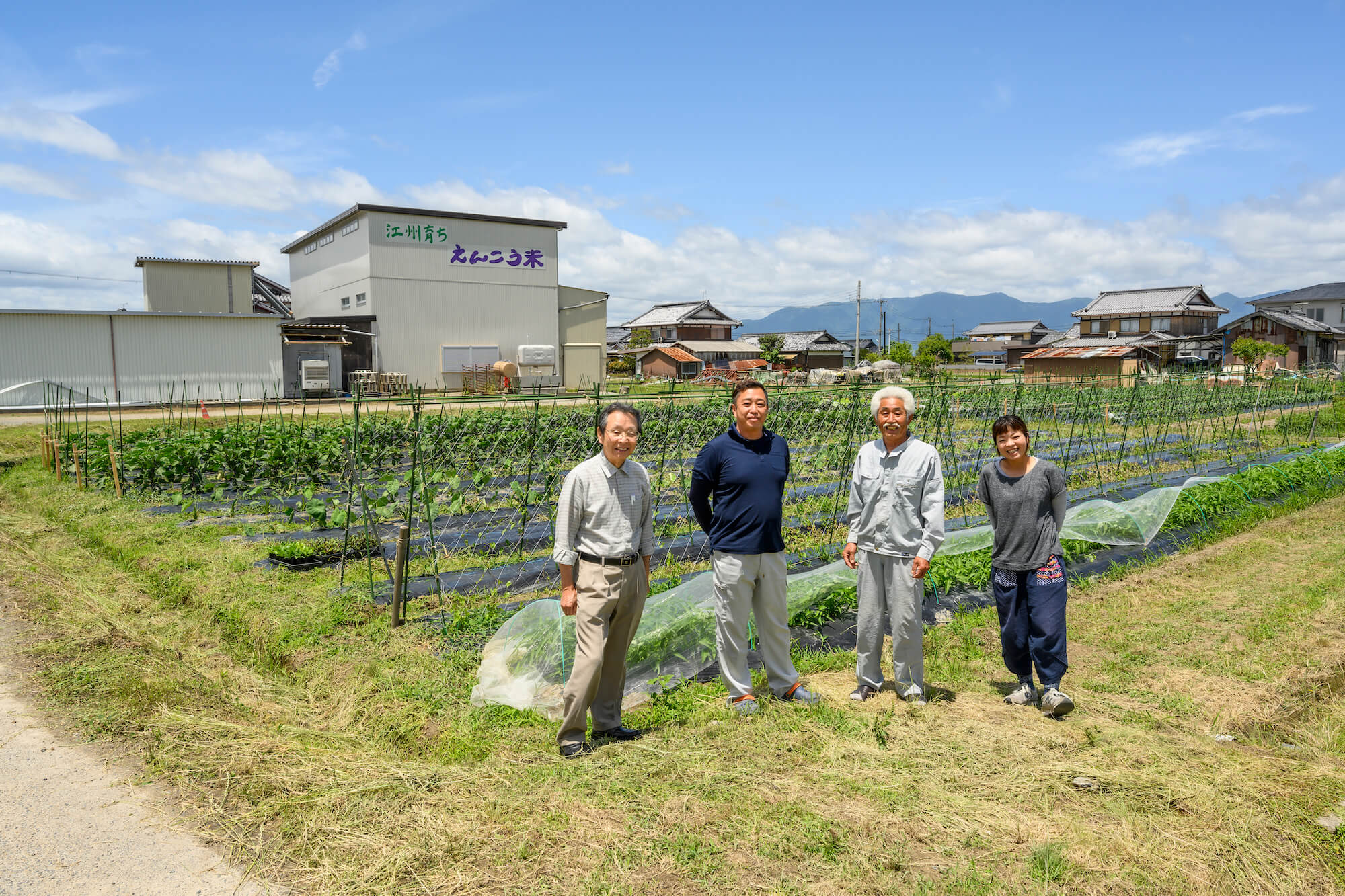
Aiming to realize safe and secure agriculture and recycling society by composting using food loss
Omi Sonoda Fam Co., Ltd.

Food waste generated during the manufacture, processing, distribution, and consumption of food. In Japan, the amount is said to be about 6.46 million tons in a year.
For these problems, GOOD NATURE STATION In order to realize a recycling-oriented society by utilizing food waste discharged from the facilities as agricultural fertilizer, we would like to promote activities aimed at achieving sustainable development goals (SDGs). .
Mr. Koichi Sonoda of "Omi-Sonoda Fun" who runs agriculture in Omi-Hachiman-shi, Shiga, serves as its partner. This time, we will introduce the efforts of Mr. Sonoda who practices recycling agriculture by composting food waste.

Agriculture is from "making soil". Making rice without using pesticides as much as possible

Koichi Sonoda was born and raised in Omi Hachiman City, an agricultural area that received the blessings of Lake Biwa. I left the company I worked at the age of 32 and inherited the family business of farming. In addition to ancestral farmland, we also manage farmland of neighboring people who left the farm because of aging and labor shortage etc. Currently we are making rice, wheat and soybean on a land of 213 hectares.
Since 2018, he has also worked on pesticide-free / organically grown vegetables. Fourteen employees, including family members and relatives, work with Sonoda. Nine of them are young people in their 20s and 30s, and some of them are qualified to be rice / taste appraisers, rice sommeliers, rice advisers and vegetable sommeliers.
Sonoda's philosophies have been witnessing local people carefully cultivating crops from an early age: "Alive soil brings up life." “We don't want the farmland we receive from our seniors to be on a thin land,” we reduced chemical fertilizers as much as possible and continued farming that was particular about organic materials (fertilizers).
In addition, from the idea of "making rice fields from making a glaze," I try to keep turbid water from flowing into Lake Biwa, which is also called "a water jar in the Kinki region," by making a firm ridge. In addition, we use environmentally conscious farming, such as using plants that emit the unpleasant smell of stink bug, Ryunohiage, without pesticides, to control stink bugs, a major enemy of rice production.
Through these efforts, in 2002, we were certified as "Eco-Farmer" in Shiga Prefecture. The brand rice "Enko rice", named after having the words "garden" and "plow" from Sonoda-san's name, and also having the meaning of "縁", has also been well received.

Recycling agriculture using "food loss compost"
A certain turning point comes to such Sonoda-san. For a long time, the feces of ovulated chickens, which have not been fed with antibiotics, have been used as compost, but the presence of data that reverses their credibility has been reported in the newspaper.
Mr. Sonoda who has doubts about safety starts looking for another material. At that time, we received a consultation from Eiji Yoshida of the Japan Food Recycling Network Kansai Chapter, which works to achieve a recycling society based in Omi Hachiman City, as to whether it is possible to utilize "food loss compost" using food waste. Yes.
Yoshida: "Food loss composting means that food waste discharged from schools, hospitals, company employee cafeterias etc. is treated with a dedicated device and recycled as compost. Farmers using that compost are Growing crops will reduce food waste, and a cycle of recycling the resulting crops back to the companies and schools where they are discharged can establish a system of recycling agriculture. "
If managed by the establishment where the waste is discharged, compost made from food waste from it will be highly safe, and producers will be able to obtain cheap compost that can be used safely. Sonoda who has heard this is surprised.
Sonoda: I did not know at all until then, but I thought it was a great effort to take care of the environment. The cooking waste and uneaten that are the source of compost are very safe, and when examined, they are similar to the compost of chicken manure used previously. I thought that this would be good for soil preparation too. "
Thus, food loss compost, which started in 2004, brings results that Sonoda did not even imagine. Not only aquatic organisms that could only be found in beautiful natural environments were found in rice fields until then, but the taste value representing the taste of rice was much higher than the average value. .

Also, according to the Ritsumeikan University survey, it has been found that the soil is richer, with microbes being contained several times larger than general land, so that more delicious crops have been grown. Mr. Sonoda, who valued the creation of soil, was not as pleased as this.
Resolving social problems and securing safe and secure agriculture

Currently, Omi-Sonoda Funamu, in cooperation with five companies including companies, schools, hospitals and hotels in Shiga Prefecture, realizes a cycle utilizing food loss compost. As well as being able to obtain safe and secure crops, it also leads to the solution of social problems such as food loss, so Sonoda's former visit has come to many visits from within and outside Japan.
Sonoda: I would like to work with more people in the future to expand the scope of this initiative. Within that, GOOD NATURE STATION I'm very happy to be involved. We expect that more people will be aware of food loss issues and focus on our efforts, as a facility where many people gather agrees.
GOOD NATURE STATION In order to achieve sustainable development goals (SDGs), we will reduce the amount of waste emitted from facilities through food loss and food waste composting, and establish an eco-cycle that uses it for agriculture. I want to work on it.


